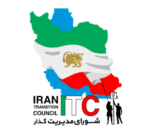By Joseph Hammond
With protests breaking out across Iran this month – Iranian opposition groups located both in the diaspora and organized clandestinely are seeking to put pressure on the regime in new ways.
While the Iranian regime blocked the internet for several days and appears to have the situation under control, an important victory for those who oppose the Islamic Republic was won not in the streets of Shiraz but, in Sweden.
Earlier this month Sweden jailed an assistant public prosecutor who it says played a key role in the mass executions of some 5,000 leftists and members of the Mojahideen el Khalq prisoners in the 1980s. British-Iranian lawyer Kaveh Mousavi is prosecuting the case and the Swedish government has agreed to keep Nouri in prison for a month as the Mousavi and his supporters look to build their case. For its part the Iranian government has assisted that Nouri is the victim of a case of mistaken identity.
Mousavi’s supporters include newly formed Iranian Transition Council of which he is a legal adviser. Rather than representing the interests of a particular ethnic group or political ideology the ITC presents a broad coalition. Though it only began operations last month the coalition includes monarchists close to the Pahlavi dynasty in exile, leftists, and representatives of Iran’s various ethnic minorities. However, it also includes defectors from the Islamic Republic and some with close ties to Shia Muslim clergy. Though individual groups have flourished in the past 40 years none has been able to reach across the political divide before.
The Iran Transition Council which began operations last month involves representatives from across Iran’s ethnic and political spectrum located in Europe, the United States and a few operatives who operate clandestinely from Iran.
“We overcame real differences between republicanism and constitutional monarchists, between Persians, Kurds and other ethnic groups. This initiative is quite broad, and it fights not for a monarchy or a republic. It fights for democracy in general, in Iran,” said Abdullah Mohtadi, who is one of the founders of the group.
While the ITC includes some 30 members on its senior council, its five-member executive leadership council consists of several prominent Iranian opposition leaders including some who were nominally former enemies. Hundreds of members are scattered around the globe. While other groups have had to create new members from scratch the ITC has largely recruited its membership from already active opposition figures in the diaspora.
One of these is Mohtadi who as the leader of Komala carried out an armed struggle against the regime and fought numerous battles with Iranian Revolutionary Guard in the 1980s until forsaking violence. Conversely, Mohsen Sazegara was one of the founders of the Iranian Revolutionary Guard and held a variety of bureaucratic posts in the Islamic Republic into the late 1980s.
The other members of the leadership council have less military experience but are no less prominent. They include Hassan Shariatmadari, whose father was the Grand Ayatollah Seyyed Kazem Shariatmadari, a leading Shia cleric in the 1960s who argued that the Shah should spare Khomeini’s life and he should be sent into exile. However, when the tables were turned after the revolution, and it was the elder Shariatmadari in jail, Khomeini had no such leniency and oversaw his execution. Finally, Mehran Barati was a student activist against the Shah in the 1960s and 1970s and is based in Germany. Shahriar Ahi was an advisor to the last Pahlavi Shah and is now a constitutional monarchist. To achieve such a broad ranging coalition, the founders have left some of the more important decisions for another day.
“After the overthrow of the regime, a convention can be held including all the representatives of Iran for a constitutional convention where it will be decided what form Iranian democracy will take be it a parliamentary democracy with a constitutional monarch or another form of democracy,” said Mohtadi at the time of the ITC’s formation.“ So, the head of state, whether it is a monarchy or a president should not be an executive one. It should look like either Sweden, Britain or Germany.”
The charter does commit a future Iranian government to ascribe to the United Nation’s “Convention on the Elimination of All Forms of Discrimination against Women” and also to allow national minorities the right to education in their mother tongues such as Azeri, Baluchi, Kurdish, or Arabic.
The group’s charter is designed to have a framework in place for the governing of Iran were the regime to collapse for one year before the holding of what would be the company’s first free democratic elections.
“We have members in the East Coast, in California, Europe, and Iraq…we use the internet to hold weekly meetings and also to have as many members of the organization meet in person as well,” says Moghezara.
While many of the movements key leaders have known each other by a reputation for some time the 10th anniversary of the Green Movement –a month’s long democratic uprising in Iran in 2009 served as an impetus for the creation of the council. Though various members of the ITC had been working towards such an organization for at least a decade.
Both Mohtadi and Sazegara are at pains to stress that the movement does not see violence as a way to bring about change, instead the ITC is committed to non-violent methods and civil disobedience. Actions like the arrest of Nouri also suggests new ways they can harass their political enemies.
Soldiers of Fortune
December 12,2019








